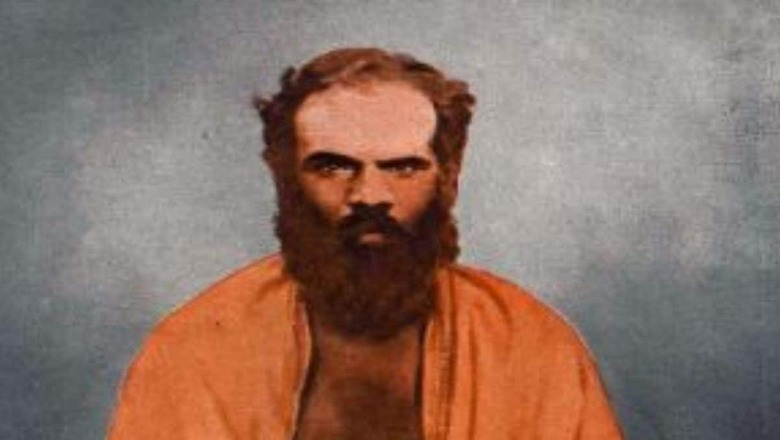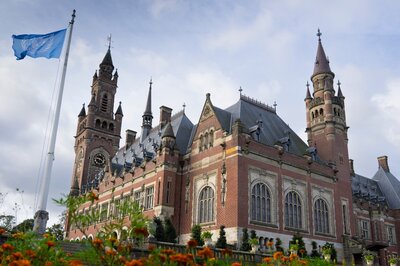
views
S.G. Kittappa, T.K. Shanmugam, M.R. Radha, K.B. Sundarambal — What is common in these greats? We all know they are super actors. But they also belong to the same acting school. The acting school, known as Boys Company in 1910, was where they were taught not just acting, but managing the shows and even bookkeeping.
The school was head mastered by Sri Sankaradas Swamigal. The real & only ‘Muthamizh Vithagar’, a stalwart who dedicated his whole life to the cause of stage play. Until 1978, the Tamil Nadu Board of Secondary Education (TNBSE) had one full lesson on Sankaradas Swamigal.
Sankaradas was born in 1867, to “Ramayana Pulavar” Damodaran Pillai and Kanthimathi Ammal, in the port city of Tuticorin. He studied Tamil under the tutelage of his father and later studied under the famous Tamil scholar of the time, Palani Dandapani Swamigal. Udumalai Sarabam Muthuswami Kavirayar, another legendary Tamil scholar was Sankaradas’ class mate.
Sankaradas then worked as an accountant in a salt factory. Composing Venba, a form of classical Tamil poetry, and songs even at the young age of 16, he found that the job was an impediment in his quest for excellence in the Tamil language and this led him to quit when he was 24 years of age. Thus, the seeds were sown for the entry of a man on the Tamil stage scene who would be regarded as its first Guru par excellence, a man to whom many leading stage artistes of the next generation would owe their craft.
His proficiency in Tamil grammar, ability to write poetry quickly – aasukavi and innate acting talent pulled crowds. In those days, without mics, his dialogue roar would not fail to reach even the last man in the audience. Drama company owners Ramudu Iyer and Kalyanarama Iyer were the first to recognise young Sankaradas. He joined their troupe as an actor and later, became a drama writer. He did a variety of roles such as Iraniyan, Ravana, Lord Yama and Lord Saneeswara.
Sankaradas then joined Samy Naidu’s drama company where he donned the role of ‘suthradhar’ in several of their plays. His unique presentation methods attracted big crowds. During that time, a disagreement with Samy Naidu broke out. Wexed in life, Sankaradas wore a sanyasi’s robe and left on a pilgrimage to various shrines of Lord Muruga, which earned him the title Swamigal. He did not marry and led a life of simplicity and strict discipline.
It was later at the insistence of Kanjira exponent Manpoondia Pillai that Sankaradas Swamigal made a comeback to the Tamil stage as a writer. Manpoondia Pillai considered Sankaradas his adopted son. Struck by his wizardry and excellence in various grammatical aspects of the Tamil language, Pillai enjoyed Swamigal’s company and many a time, the duo had sessions where Pillai played Kanjira to Swamigal’s songs. The famous Mridanga Vidwans of the time, Pudukottai Dakshinamurthy Pillai and Pazhani Muthiah Pillai were students of Manpoondia Pillai at that time.
Swamigal wrote for Valli Vaidyanatha Iyer, Alli Parameswara Iyer and P.S. Velu Nair’s Shanmukananda Sabha. For P.S. Velu Nair’s company, he wrote the songs for Pammal Sambanda Mudaliar’s immortal classic, Manoharan. T.S. Kannuswamy Pillai, the father of the legendary TKS brothers, first came to be associated with Sankaradas Swamigal at this time.
Swamigal has written a total of 50 plays. Among them are Cymbaline, Romeo Juliet and Julius Caesar, translated from English.
All the dramas written and directed by Swamigal are great. However, the following dramas are super special-
- Satyawan Savitri
- Pavala Kodi Charithram
- Valli Thirumanam
- Arichandra Mayana Kandam
- Kovalan Charithram
- Rama Ravana Yuddham
- Veerapandia Kattabomman
- Madurai Veeran
- Chitrangi Vilasam
- Naladamayanthi
Tamil theatre can be classified as before Swamigal’s time and after Swamigal’s time. His plays kept alive the art of theatre even after his time. NS Krishnan would refer to Swamigal as the Himalayas of the theatre world.
In 1918, Swamigal and a few of his friends started their own company, the Tattva Meenalochani Vidwat Bala Sabha. It was here that T.S. Kannuswamy Pillai, who had first met Swamigal at P.S. Velu Nair’s Company, brought his three elder sons, T.K. Sankaran, T.K. Muthuswamy and T.K. Shanmugam to put them under Swamigal. In his memoirs “Enadhu Nataka Vazhkai,” Shanmugam gives an interesting account of his time at the company and his experiences with Swamigal. Swamigal wrote the play “Abhimanyu Sundari” keeping him in mind for the role of the protagonist. What was remarkable about this? He wrote this play of four hours in one night.
Swamigal was a stickler for discipline and was against artistes consuming betel, tobacco, beedis and the like. Anyone found violating the code was subjected to punishment by Swamigal. Many had run out of his school due to this. He had a large group of students. GS Munusamy Naidu, Saminatha Mudaliar, Srinivasa Alwar, Natesa Pathar, MR Govindasamy Pillai, C. Kannaiah, CS Chamanna, Sundararao, Surya Narayana Bhagavatar, Madurai Mariyappa Swamy, SG Kittappa, R.V. Manickam and T.K. Shanmugam brothers are notable among the male students. Balambal, Balamani, Aranganayaki, Korangi Manickam, DD Thayammal are notable among female students. K. Sarangapani and R. Balasubramaniam, who later became famous in films, were also students of Swamigal.
Swamigal lived his last days in Pondicherry, assisted and cared for by his dear students. Paralyzed by a stroke, he died on Nov 13, 1922.
The author is electrical engineer, worked with a reputable print media in Bangalore and took voluntary retirement, currently involved in supporting nationalistic activities. Views expressed are personal.
Read all the Latest Opinions here




















Comments
0 comment